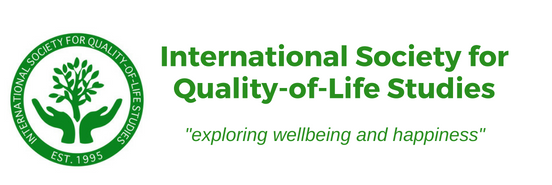ISQOLS WEBINAR:
"How much can we learn from subjective wellbeing data?"
THURSDAY, OCTOBER 13
9:30am EDT/2:30pm BST/3:30pm CEST
FREE
Survey data on subjective wellbeing are increasingly used across the social sciences. Such data have also become an official part of UK Government data collection. However, the extent to which such data can be used to make firm conclusions about people’s wellbeing has long been questioned. Indeed, several recent studies argue that results based on subjective data are always reversible. This raises profound questions about the viability of research based on such data. The webinar addresses these questions head-on. First, I will show how to derive a simple test of whether the sign of estimated OLS coefficients based on subjective data can indeed be reversed. In this context, I also show how to deduce bounds for ratios of coefficients under relatively weak assumptions. This is especially important when trying to perform cost-effectiveness analyses. Second, I show that in order for reversals to occur in practice, respondents would have to be using response scales in a strongly non-linear fashion. Fortunately, several pieces of empirical evidence – both original and sourced from previous works – suggest approximately linear scale-use. Third and finally, I empirically show that, in practice, sign reversals seem to be exceptionally rare or even impossible for a number of core socio-economic variables. At the end of the webinar I will make some suggestions for future work that could help to further establish the viability and acceptability of subjective wellbeing research.
Presented by: Caspar Kaiser
Caspar is a Research Officer at the Institute for New Economic Thinking and a Research Fellow at the Wellbeing Research Centre, both of which are part of the University of Oxford. He is also a trustee of the Happier Lives Institute, which aims to find the most cost-effective ways to improve global wellbeing.
Caspar’s research focuses on the measurement and determinants of wellbeing.
Regarding measurement, he works on improving the comparability of survey data on people's feelings and analyses whether such data can measure welfare cardinally. Concerning determinants, he investigates how social comparisons and inequalities, particularly with respect to people's incomes, shape wellbeing.
Beyond these foci, he is interested in the wider normative implications of using subjective data, questions of welfare measurement more generally, the determinants and consequences of social mobility, as well as developments in causal inference and machine learning.
In December 2020, Caspar completed a DPhil in Social Policy at Nuffield College and the Department of Social Policy & Intervention under the supervision of Brian Nolan (INET, Oxford) and Maarten Vendrik (SBE, Maastricht). His doctoral research was funded by a Barnett House-Nuffield Joint Scholarship.
